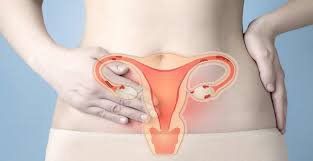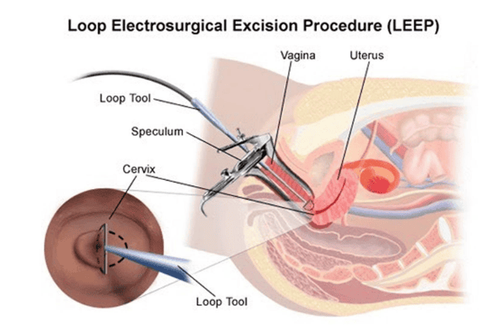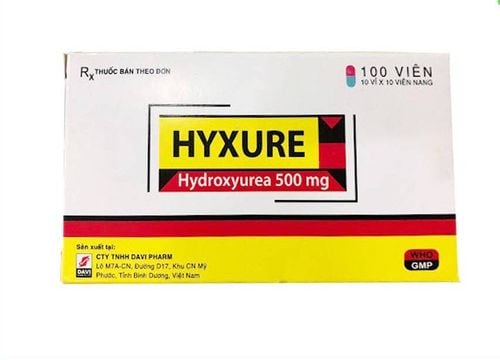This is an automatically translated article.
The article was professionally consulted with Specialist Doctor II Pham Thi Tuyet Mai - Obstetrician and Gynecologist - Department of Obstetrics and Gynecology - Vinmec Hai Phong International General Hospital.Cervical cone can occur some unwanted complications. Therefore, the follow-up after cervical cerclage plays a very important role for the patient to recover quickly and to limit complications.
1. What is a cervical cone?
Cervical conection is the removal of part of the cone of the cervix. The purpose of this method is to remove the lesions in the cervical region and the entire transformed area.To perform a cone cervicectomy, the doctor will disinfect the external genitalia and insert a speculum into the vagina to see the vagina more clearly. The doctor then uses an electrical loop (LEEP) to remove a sample of cone tissue from the cervix. The effect of the electric ring is to stop bleeding at the cutting site and use the laser beam to stop bleeding.
2. Why do you have to cut the cone of the cervix?
Currently there are many methods to cure cervical diseases, but the method of cutting the cervical cone is still indicated by doctors in many cases, the reason is because: Patients with abnormal cancer screening results help evaluate or treat the disease. Helps to remove abnormal cysts in the cervix effectively and quickly. Helps to get enough intact patient samples for tissue testing after the procedure. Treatment of cervical precancerous lesions (mild to severe epithelial dysplasia), benign cervical lesions ineffective cryotherapy, cervical polyposis, fibroids. Helps monitor ongoing abnormal Pap tests. Diagnosis of invasive cervical cancer.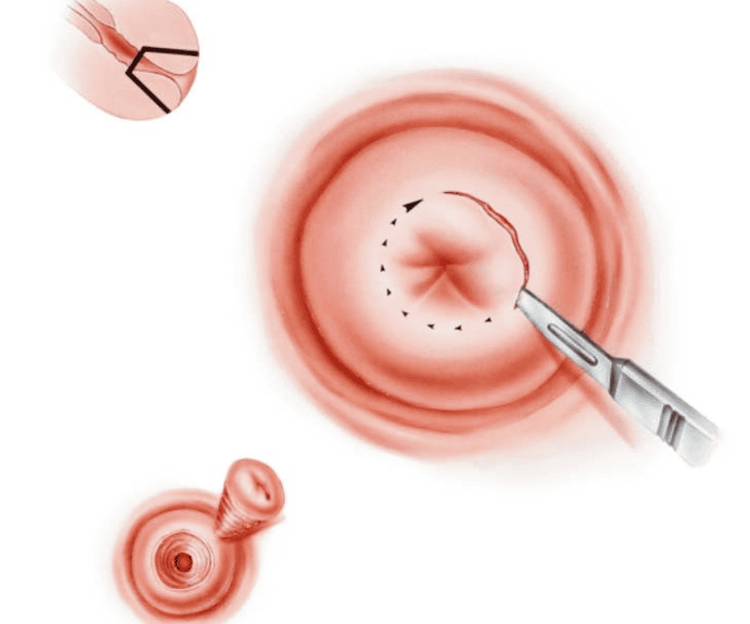
3. Follow-up and care after cervicectomy
Follow-up after cervical cone resection is one of the most important steps for the patient to recover quickly and to limit complications. So, what should be abstained after cervical cone surgery? And how to take care and clean it every day? In this regard, specialists say that, after cutting the cone of the cervix, the patient may have pink, liquid vaginal discharge, slight contractions or brown-black vaginal discharge. However, bleeding after cervicectomy is normal and may take several weeks for the cervix to heal completely. To recover quickly and avoid complications, the patient should:Use medication as directed by the doctor to prevent infection. Do not use anything inserted into the vagina such as tampons or douches too deeply; Abstain from sex for 6 weeks to avoid infection and help the wound heal. Colectomy can increase the risk of preterm birth or low birth weight for future pregnancies, so it is important to monitor your health, carefully examine your health during the reconstruction period after cervicectomy and during pregnancy. In rare cases, reconstruction after a cone cervicectomy can cause the cervix to narrow and cause menstrual irregularities, menstrual irregularities, or difficulty with conception. more difficult, go to a medical facility to check right away in this case. If the patient has had a cone biopsy, a Pap test should be performed every 4–6 months or as recommended by the physician for regular monitoring and cervical screening. During the reconstruction period after cervical cone surgery, the patient should pay attention to follow the doctor's instructions and contact them immediately if they encounter the following problems:
Menstruation is more frequent than usual; Bleeding after cervicectomy with blood clots; Severe abdominal pain and fever. Vinmec International Hospital currently offers a screening package and early detection of gynecological cancer, helping to detect 4 diseases early: cervical cancer, breast cancer, uterine cancer and ovarian cancer right away. even when the patient has no symptoms.
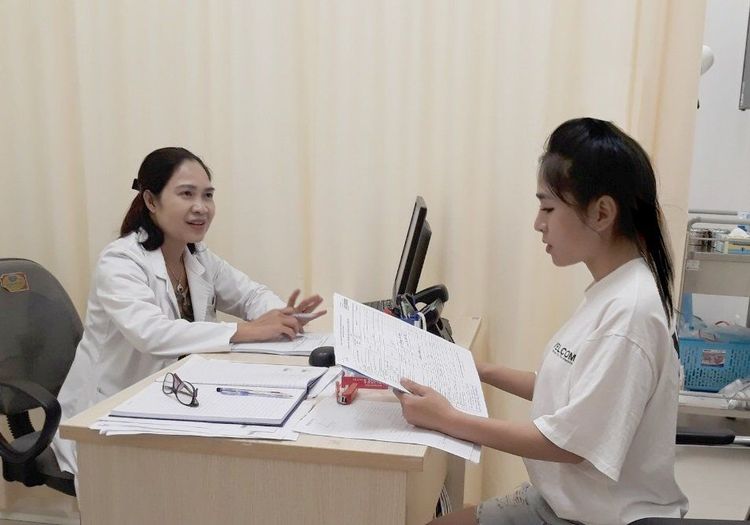
Female customers, over 40 years old. Customers wishing to be able to screen for breast-gynecological cancers (cervical, uterine, ovarian). Customers with high risk of cancer - especially customers with a family history of breast and gynecological cancers. Women of reproductive age, perimenopause and menopause. Women who are having symptoms of breast cancer, gynecological cancer such as: pain in the breast, lump in the breast, bleeding outside the menstrual period, abdominal pain, etc... If you have unusual symptoms, you should be examined and consulted with a specialist.
Please dial HOTLINE for more information or register for an appointment HERE. Download MyVinmec app to make appointments faster and to manage your bookings easily.





